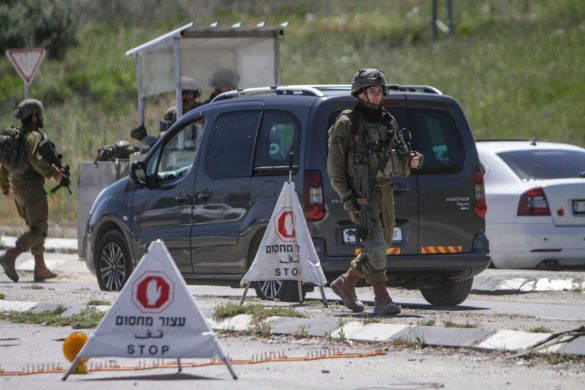En ny rapport fra menneskerettighedsorganisationen Amnesty International retter fokus mod de tusinder af mennesker, der forsvandt under borgerkrigen i Libanon. I forbindelse med lanceringen af rapporten kræver organisationen at det officielle Libanon nedsætter en uafhængig kommission, der skal undersøge hvad der skete med de forsvundne.
14 April 2011. The Lebanese authorities must take urgent steps to establish an independent commission to fully investigate the fates of thousands of people missing since Lebanon’s civil war, Amnesty International said today.
Never Forgotten: Lebanon’s Missing People documents a bitter legacy of the 1975-1990 civil war: the thousands of people whose fates remain unknown.
Some went missing after they were arrested or captured by parties to the conflict, others may have been killed during battles and massacres, while others vanished in unclear circumstances.
– It really is high time that the Lebanese authorities took steps towards bringing this very painful episode to a close, said Malcolm Smart, Amnesty International’s Middle East and North Africa Director.
– Both the President and the Council of Ministers pledged action but as yet no concrete steps have been taken to address the continued suffering of the families who have been waiting for so long to find out what happened to their loved ones.”
– What is urgently needed now is an independent commission of inquiry, one that includes among its members representatives of the families of the missing.”
Amnesty International is also calling on the authorities to set up a programme to collect DNA from the families of the missing who wish it, and to ensure that DNA testing is done whenever human remains of those killed in the conflict are uncovered.
– Science provides a means today of finding the identities of people who went missing in the civil war in a way that was just not possible then, as the experience of other countries has shown, said Malcolm Smart.
Previous investigations established by the authorities have not been independent, transparent or effective, leaving families of the missing to suffer the anguish of loss and continuing uncertainty.
Many families wish to know where their loved ones are buried so that they can organize a dignified burial and properly grieve.
Others still hold out hope that their relatives may still be alive in Syria or elsewhere as some of those detained by armed groups or government forces were transferred out of the country, making it doubly difficult for families to obtain answers.
The disappearance without trace, in many cases of the family’s breadwinner, has left families destitute, and in many cases powerless to obtain passports because women are unable to get them without an official male guardian.
– The rights of victims and their families to truth, justice and where applicable reparations, can only be achieved with the full co-operation and transparency of state institutions and individuals involved, without exemption.
Under international human right standards families have the right to know the fate of their relatives in relation to situations of armed conflict. Parties to armed conflict must release all relevant information about the fate or whereabouts of people reported missing, and states must conduct thorough and independent investigations into violations of human rights during, and after, a conflict.















